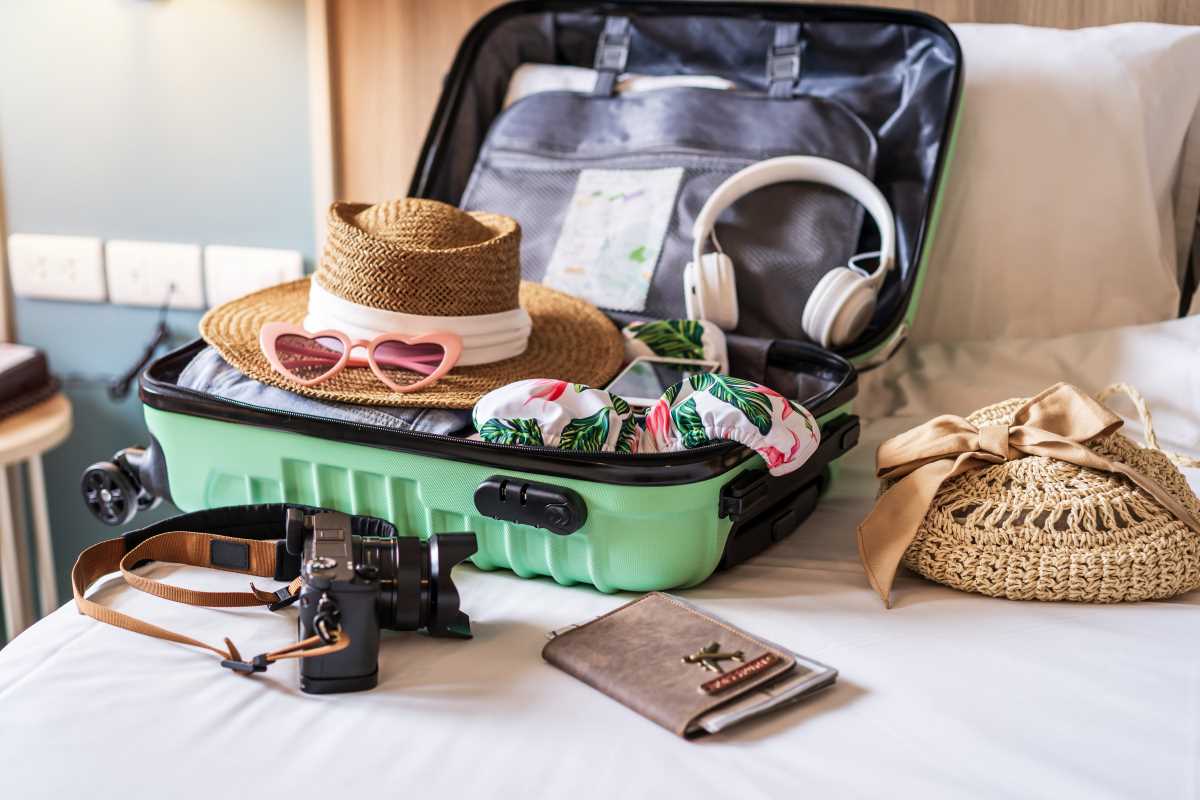Traveling can be an exhilarating adventure filled with new sights, cultures, and experiences. However, it can also take a toll on your health if you're not careful. Staying healthy while traveling requires a little planning and mindfulness. Here are some essential strategies to help you maintain your well-being on your travels.
Healthy Eating on the Go
One of the biggest challenges when traveling is maintaining a healthy diet. With the temptation of fast food and convenience snacks, it’s easy to stray from your usual eating habits. To combat this, prioritize healthy eating options. Start by packing nutritious snacks such as nuts, dried fruit, granola bars, and whole-grain crackers. These snacks are not only easy to carry but also provide the energy you need to keep going throughout your day of exploring.
When dining out, opt for meals that include a balance of protein, healthy fats, and carbohydrates. Look for local restaurants that emphasize fresh, seasonal ingredients. If you're staying somewhere with kitchen facilities, consider cooking some of your meals. This way, you can control what you eat and incorporate plenty of fruits and vegetables into your diet. Eating well will help you feel more energized and better prepared to tackle your travel itinerary.
Staying Hydrated
Staying hydrated is crucial for maintaining your energy levels and overall health while traveling. Dehydration can lead to fatigue, headaches, and decreased cognitive function, making your journey less enjoyable. Carry a reusable water bottle to refill throughout the day, especially during flights or in hot climates where dehydration can occur more quickly.
When flying, it’s important to drink water before, during, and after your flight. The low humidity levels in airplane cabins can sap your hydration, so aim to drink at least 8 ounces of water for every hour spent in the air. If you’re traveling to a destination with limited access to clean drinking water, consider bringing a portable water purifier or water purification tablets to ensure safe hydration.
Regular Exercise
Maintaining a regular exercise routine can be a challenge when traveling, but it’s essential for your physical and mental well-being. Incorporating physical activity into your daily routine can be both fun and rewarding. Consider exploring new cities on foot or by bike, which allows you to take in the sights while getting your exercise in.
Many hotels offer fitness facilities, so take advantage of these amenities if available. You can also find local gyms or community centers that offer day passes for visitors. If you prefer to exercise independently, pack a resistance band or jump rope for a quick workout in your hotel room. Apps and online workout videos can also provide guided exercises that require minimal space and equipment.
Rest and Relaxation
Traveling can be exhilarating, but it can also be exhausting. Prioritizing rest and relaxation is crucial for your health. Lack of sleep can weaken your immune system and leave you feeling run down. Aim for at least 7-9 hours of sleep each night to keep your body functioning optimally.
If you find yourself in a busy schedule, consider scheduling downtime in your itinerary. This could be a leisurely afternoon at a park, a spa day, or simply lounging at your accommodation. Incorporating relaxation techniques such as meditation, deep breathing exercises, or gentle yoga can help reduce stress and promote better sleep. Remember, a well-rested traveler is a happy traveler.
Proper Hand Hygiene
Traveling often means encountering a variety of germs and bacteria, making hand hygiene especially important. Regularly washing your hands with soap and water is one of the best ways to prevent illness. Wash your hands before eating, after using public restrooms, and after touching surfaces in crowded areas.
When soap and water aren’t available, hand sanitizer is a great alternative. Carry a travel-sized bottle with you to use whenever necessary. Additionally, consider bringing disinfectant wipes to clean surfaces in hotels or airplanes that may harbor germs. This simple habit can significantly reduce your risk of falling ill and keep you healthy throughout your journey.
Travel Insurance
Investing in travel insurance is a smart decision to protect yourself in case of unexpected health emergencies. Travel insurance can cover medical expenses, trip cancellations, lost luggage, and other unforeseen circumstances. It provides peace of mind, knowing you have support in place if something goes wrong.
Before purchasing travel insurance, take the time to research different policies and coverage options. Look for a plan that meets your specific needs, particularly if you have any pre-existing health conditions. In addition to insurance, it’s wise to carry a list of emergency contacts, including local hospitals and clinics at your destination.
Managing Stress
Traveling can be a source of stress, whether it’s from planning itineraries, dealing with travel delays, or navigating unfamiliar environments. Finding ways to manage stress is essential for your health. Start by being flexible with your travel plans; not everything will go as expected, and that’s okay. Allow yourself to adapt to changes and enjoy the unexpected moments.
Practicing mindfulness techniques can help you stay centered and calm during your travels. Consider keeping a travel journal to document your experiences and feelings, or engage in daily gratitude exercises to focus on the positive aspects of your journey. If you find yourself overwhelmed, take a few minutes to step back, breathe, and recalibrate.
Connecting with Locals
Engaging with locals can enhance your travel experience and contribute to your overall well-being. Interacting with people from different cultures can provide a sense of connection and belonging. Look for opportunities to join local tours, cooking classes, or community events, which can help you immerse yourself in the culture and make new friends along the way.
 (Image via
(Image via





